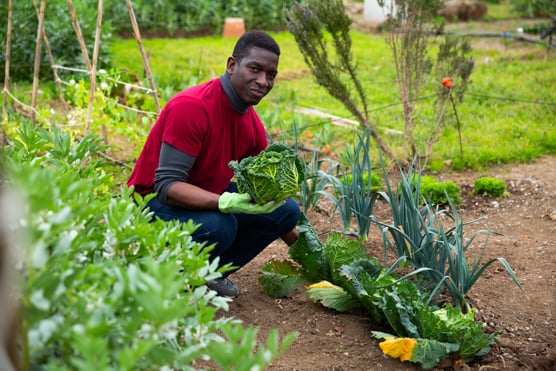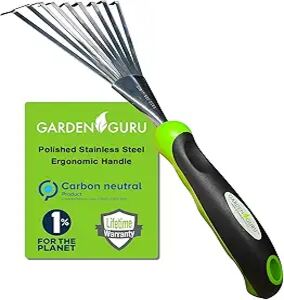Essential Gardening Equipment Every Gardener Requirements for a Beautiful Yard
Essential Gardening Equipment Every Gardener Requirements for a Beautiful Yard
Blog Article
Unlocking the Conveniences of Horticulture: A Thorough Take A Look At the Different Types and Their Effect On Wellness
Exploring the multifaceted benefits of horticulture reveals a spectrum of methods that substantially boost specific health. As we check out these varied horticulture techniques, it ends up being noticeable that their impact can resonate on individual, social, and ecological levels, motivating a better look at exactly how these connections form a natural narrative of holistic wellness.
Kinds of Horticulture

Blossom gardening, one more prominent category, stresses the aesthetic appeal of grown blossoms. This type can boost landscapes and promote biodiversity by attracting beneficial pollinators. Likewise, natural herb gardening involves growing fragrant and cooking plants, contributing both to cooking and natural treatments.
Container gardening offers versatility, allowing individuals with restricted room to involve in horticulture by using pots and planters. This approach is particularly preferred in metropolitan settings. Raised bed gardening, on the other hand, includes producing raised plots that boost dirt drain and ease of access, making it much easier for gardeners to manage their plants.
Last but not least, area gardening promotes partnership among people in shared spaces, promoting social communication and cumulative responsibility. Each kind of horticulture offers distinctive purposes and deals with different choices, making horticulture a versatile task that can be tailored to private needs and settings.
Mental Health And Wellness Advantages
Participating in various sorts of horticulture not only yields tangible benefits such as fresh fruit and vegetables and attractive blossoms yet additionally supplies substantial psychological health and wellness benefits. Research study indicates that horticulture can be a powerful tool for minimizing anxiety, stress and anxiety, and depression. The act of tending to plants and cultivating a garden fosters a feeling of function and accomplishment, which can boost overall psychological wellness.
Furthermore, gardening motivates mindfulness, as it calls for individuals to concentrate on the here and now minute, whether it be planting seeds or nurturing development. This mindfulness method can result in lowered rumination and improved state of mind security. The direct exposure to natural atmospheres during gardening has actually additionally been connected to boosted cognitive functioning and decreased sensations of tiredness.
Social interaction plays a vital duty in mental health, and community gardening campaigns provide opportunities for people to link with others, cultivating a sense of belonging. The common experience of horticulture can cultivate friendships and support networks, better strengthening psychological resilience.
Physical Health Benefits
Lots of people may not understand that gardening likewise offers significant physical health advantages. Participating in gardening tasks calls for a range of physical movements, consisting of bending, lifting, excavating, and planting, which jointly add to improved strength, versatility, and endurance. These activities can boost cardiovascular health by promoting a raised heart rate, therefore minimizing the risk of heart disease.
Additionally, horticulture can offer as a moderate-intensity exercise, helping individuals achieve advised exercise degrees. Research studies indicate that regular engagement in gardening can melt considerable calories-- roughly 200-400 calories per hour, relying on the intensity of the tasks done. Such calorie expenditure is advantageous for weight monitoring and total metabolic wellness.
Furthermore, exposure to sunlight during gardening can facilitate the synthesis of vitamin D, which plays an essential function in keeping bone health and supporting immune feature. The act of gardening commonly involves functioning with dirt, useful source which has actually been linked to prospective mental and physical health benefits due to the existence of beneficial microorganisms.
Social Connections Through Horticulture
The public facets of gardening foster meaningful social connections amongst people. Area yards, particularly, serve as vibrant centers where people from varied histories collaborated, growing not just plants however likewise partnerships. These common spaces motivate partnership, enabling people to exchange expertise, abilities, and sources, thereby boosting their horticulture experience and fostering a feeling of belonging.
Engagement in gardening tasks commonly leads to the development of relationships and support networks. Individuals regularly unify for typical goals, such as growing seasons, harvest events, or instructional workshops, which strengthen interpersonal connections and produce a sense of community. Such communications can minimize feelings of isolation and boost psychological wellness, as people discover companionship and sociability in common endeavors.
Environmental Effect of Horticulture
Horticulture dramatically contributes to ecological sustainability in multiple means. Home yards give vital habitats for various varieties, consisting of pollinators such as bees and butterflies, which are vital for ecological community health sites and wellness.

In addition, gardens play an important duty in water conservation. Tactical landscapes, consisting of indigenous plants and xeriscaping, decrease water use and stop drainage, therefore safeguarding regional waterways from pollution.
Verdict

Finally, gardening works as a complex activity that enhances well-being across various domains. The varied kinds of horticulture-- consisting of veggie, flower, herb, container, and elevated bed-- contribute to psychological and physical health, foster social connections, and promote environmental sustainability. By involving in gardening methods, people can experience improved high quality of life while likewise supporting neighborhood bonds and environmental health and wellness. Inevitably, the alternative advantages of horticulture highlight its significance as an essential element in improving general wellness.
Report this page